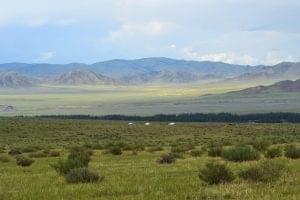End of the farmland? A few more decades and a significant part of Hungary could become a forested steppe
Hungary is threatened with drought in the coming decades if climate change is not stopped, ELTE researchers told MTI on Tuesday.

Environmental conditions similar to Mongolia await us if we do not take steps against climate change. (Photo: Pixabay)
In their study, due to increasingly stronger climate change, the spread of dry areas is likely, primarily in the northern and central parts of the Great Plain, the Little Plain and the northeastern part of Transdanubia. The process has been going on for decades, compared to the 1970s and 1980s, the proportion of wet areas has already decreased from 84 percent to 68 percent, comparing the June data, they wrote.
In the worst case, the larger forests and a good part of the agricultural land will almost disappear
The forecast outlines several possibilities. Based on the worst case scenario, by the end of the century, the Great Plain may be a completely dry area, and only the western part of the country will remain wetter. It is conceivable that Hungary may be predominantly, even more than 85 percent, dominated by forested steppe by the second half of the century, with the beech forests disappearing completely, and the oak forests also shrinking to a very small area.
If we can improve the current situation, a lesser evil awaits us
The less serious possibility is that the drying is limited to a smaller area, a significant part of the North Central Mountains and Transdanubia will remain a wet area. This also shows that it does not matter what happens until then, since the extent of the changes in the coming decades depends on the current measures – they added. The study on the domestic effects of climate change is published on the masfelfok.hu website.
MTI
Related news
István Nagy: You can join the agricultural crisis insurance system soon
🎧 Hallgasd a cikket: Lejátszás Szünet Folytatás Leállítás Nyelv: Auto…
Read more >The Earth is warming faster than models can track – air pollution has so far masked the true severity of the situation
🎧 Hallgasd a cikket: Lejátszás Szünet Folytatás Leállítás Nyelv: Auto…
Read more >Amsterdam bans meat and fossil fuel advertising as part of fight against climate change
🎧 Hallgasd a cikket: Lejátszás Szünet Folytatás Leállítás Nyelv: Auto…
Read more >Related news
EY Businessman of the Year: Tibor Veres is the grand prize winner, six special awards were also given out
🎧 Hallgasd a cikket: Lejátszás Szünet Folytatás Leállítás Nyelv: Auto…
Read more >Nestlé to sell remaining ice-cream assets but commits to Froneri venture
🎧 Hallgasd a cikket: Lejátszás Szünet Folytatás Leállítás Nyelv: Auto…
Read more >Lidl guarantees fairer prices for cocoa farmers
🎧 Hallgasd a cikket: Lejátszás Szünet Folytatás Leállítás Nyelv: Auto…
Read more >








